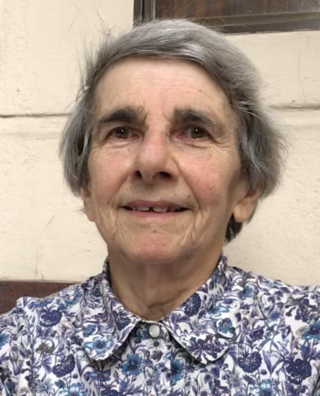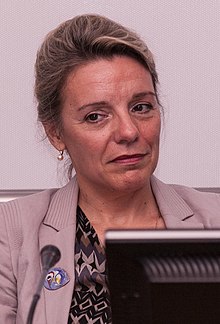
Sorbonne University is a public research university located in Paris, France. The institution's legacy reaches back to the Middle Ages in 1257 when Sorbonne College was established by Robert de Sorbon as one of the first universities in Europe.

The name Sorbonne is commonly used to refer to the historic University of Paris in Paris, France or one of its successor institutions. It is also the name of a building in the Latin Quarter of Paris which from 1253 onwards housed the College of Sorbonne, part of one of the first universities in the Western world, later renamed University of Paris and commonly known as "the Sorbonne". Today, it continues to house the successor universities of the University of Paris, such as Panthéon-Sorbonne University, Sorbonne University, Sorbonne Nouvelle University and Paris City University, as well as the Chancellerie des universités de Paris. Sorbonne Université is also now the university resulting from the merger on 1 January 2018 of Paris 6 UPMC and Paris 4 Sorbonne.

Paris-Sorbonne University was a public research university in Paris, France, active from 1971 to 2017. It was the main inheritor of the Faculty of Humanities of the University of Paris. In 2018, it merged with Pierre and Marie Curie University and some smaller entities to form a new university called Sorbonne University.

Alain Bauer is a French criminologist who has been a professor of criminology at the Conservatoire national des arts et métiers since 2009. He is also a senior research fellow at the John Jay College of Criminal Justice and the China University of Political Science and Law (Beijing). There were many protests in the scientific community in France against the appointment because he had not received a PhD.

André Siegfried was a French academic, geographer and political writer best known to English speakers for his commentaries on American, Canadian, and British politics.

The Sorbonne Nouvelle University is a public university in Paris, France. It is one of the inheritors of the historic University of Paris, which was completely overhauled and restructured in 1970. Paris III offers courses in a wide range of Arts and Humanities subjects, areas in which – according to the 2018 QS World University Rankings – the university is the 71st best worldwide.

Sandra Laugier is a French philosopher, who works on moral philosophy, political philosophy, philosophy of language, gender studies, and popular culture. She is a full professor of philosophy at the University of Paris 1 Panthéon-Sorbonne and a Senior member of the Institut Universitaire de France. She currently serves as the deputy director of the Institut des sciences juridique et philosophique de la Sorbonne. In 2014, she received the title of the Chevalier de la Légion d’honneur. In 2022, she was awarded the Grand Prix Moron by the Académie française.

Georges Balandier was a French sociologist, anthropologist and ethnologist noted for his research in Sub-Saharan Africa. Balandier was born in Aillevillers-et-Lyaumont. He was a professor at the Sorbonne, and is a member of the Center for African Studies, a research center of the École pratique des hautes études. He held for many years the Editorship of Cahiers Internationaux de Sociologie and edited the series Sociologie d'Aujourd'hui at Presses Universitaires de France. He was elected to the American Philosophical Society in 1976. He died on 5 October 2016 at the age of 95.

Henry Laurens is a French historian and author of several histories and studies about the Arab-Muslim world. He is Professor and Chair of History of the Contemporary Arab world at the Collège de France, Paris.

Jeanne Henriette Louis, is professor emeritus of civilization in North America at the University of Orléans, France.
Annie Ousset-Krief, Ph.D. and associate professor at the Sorbonne Nouvelle - Paris 3 University, is a French historian and American Civilization specialist.

Danièle Pistone is a French musicologist, emeritus professor at the University Paris Sorbonne 4.
Ronald Creagh is a sociologist and anarchist best known for his books on American intentional communities. He is a professor of American civilization in Montpellier.

Paris Cité University is a public research university located in Paris, France. It was created by decree on 20 March 2019, resulting from the merger of Paris Descartes and Paris Diderot universities, established following the division of the University of Paris in 1970. It was originally established as the University of Paris, but was renamed by decree in March 2022 to its current name. The university headquarter is located in the 6th arrondissement at boulevard Saint-Germain. Among the best universities worldwide, in 2021 it was ranked 14th among young universities according to the Times Higher Education, and 65th according to the Shanghai Ranking.

Claude Gauvard is a French historian and Middle Ages specialist. She has been the President of Société de l'histoire de France since 2009.

Claude-Hélène Perrot was a French historian and Africanist who specialized in the history of Côte d'Ivoire. She served as a professor of contemporary African history at the University of Paris 1 Pantheon-Sorbonne from 1983 to 1993. Perrot's main areas of research concerned the history of the Akan of Côte d'Ivoire and Ghana before colonization, mainly the Anyi and the Eotile; the use of oral tradition by historians; as well as relations between traditional African religions and political power. She was honored as Commander, Order of Ivory Merit.

The Centre de formation des journalistes or École CFJ is the journalism school of Paris-Panthéon-Assas University, located in Paris and Lyon, France.

Marianne Debouzy, born Marianne Bella Lehmann, was a French historian who specialized in American history.

Marie-Cécile Naves is a French sociologist and political scientist who is the director of research at Institut de relations internationales et stratégiques (IRIS). A specialist in the United States, she also speaks on the themes of sports and gender.

Juliette Rennes is a French sociologist. Since 2021, she has been the director of studies at the School for Advanced Studies in the Social Sciences (EHESS). She is also the director of the Center for the Study of Social Movements (CEMS). Rennes' research topics are related to the history and sociology of gender, work, and discrimination.


















